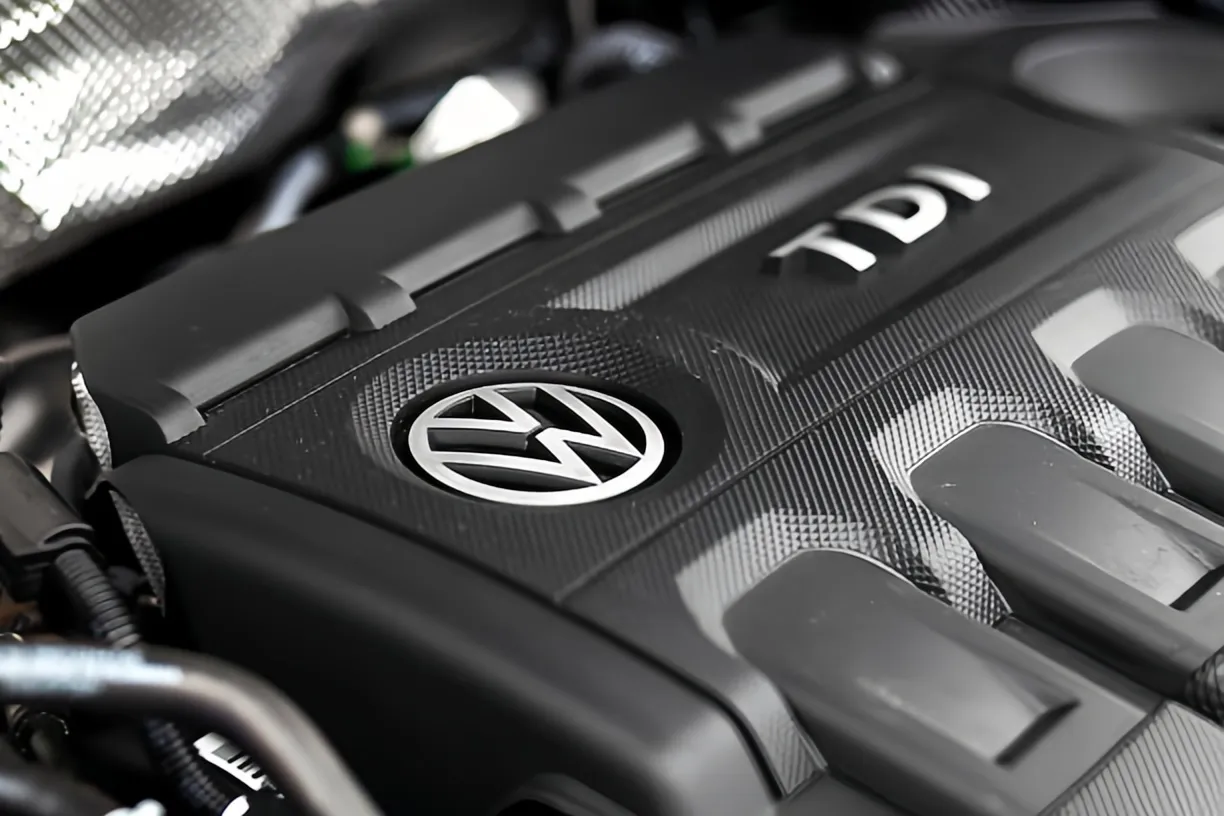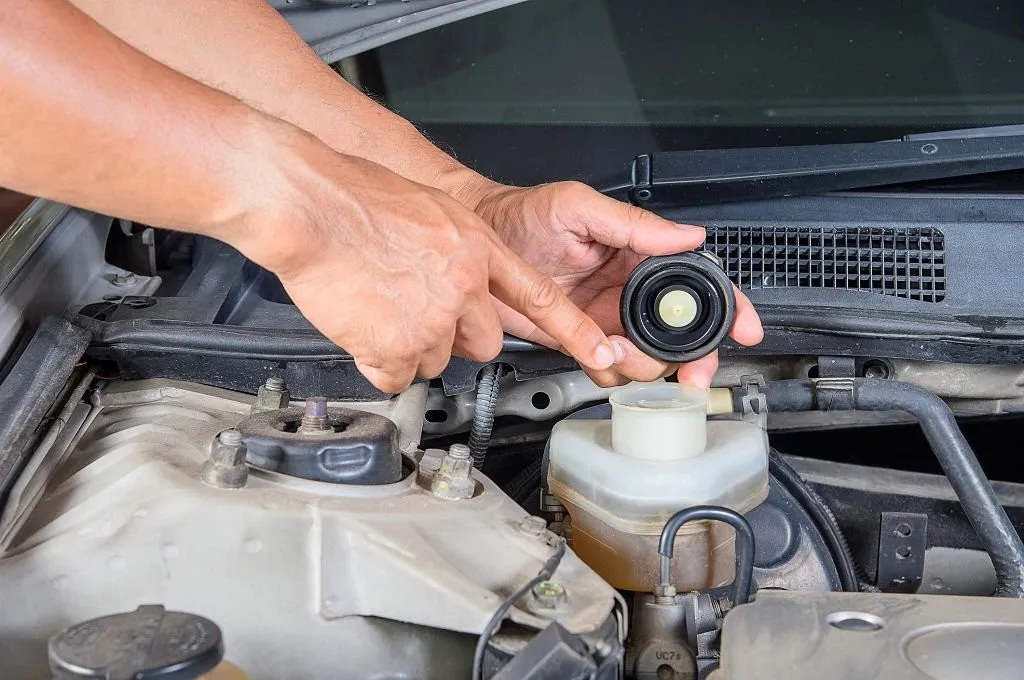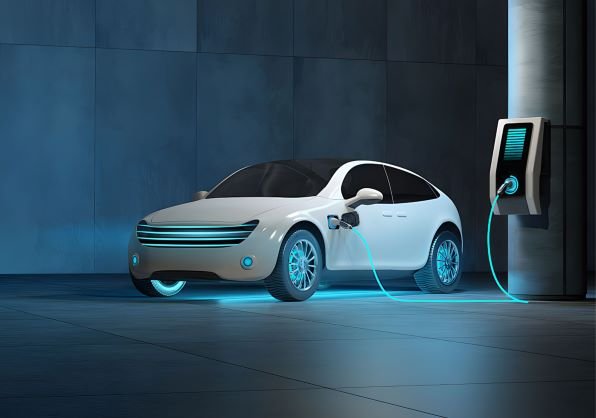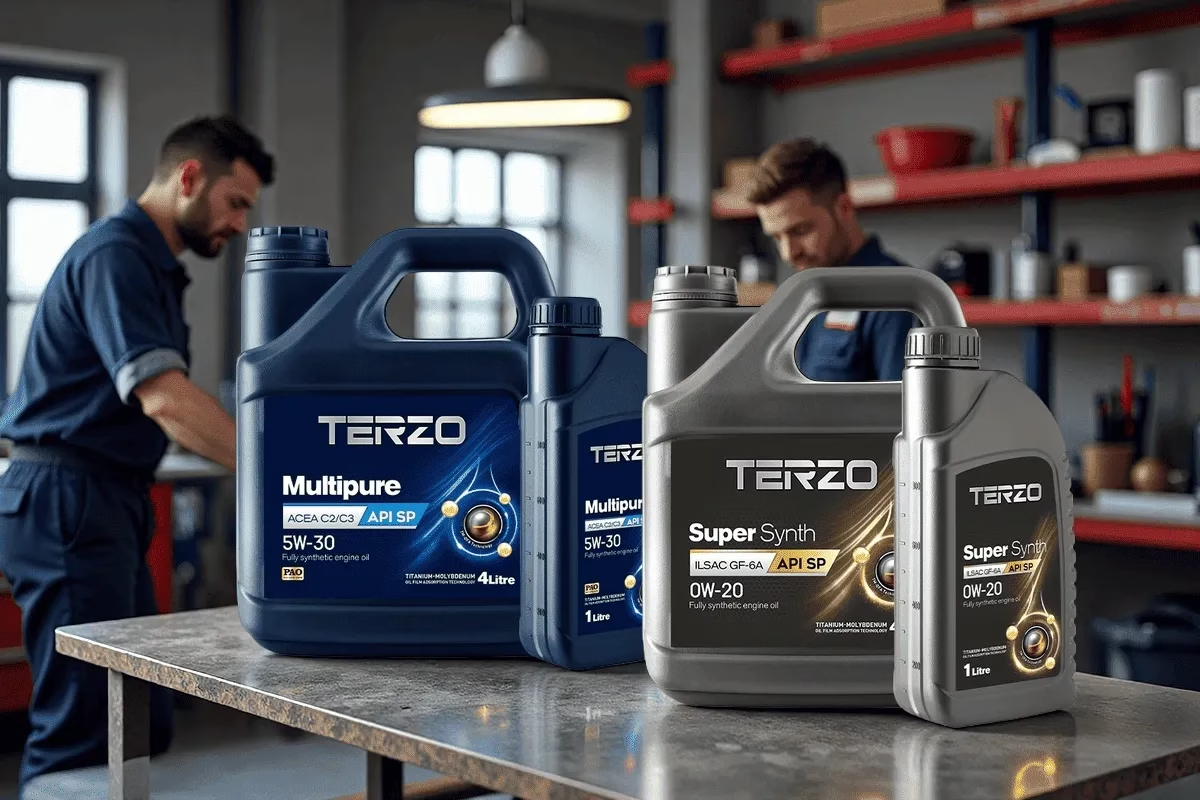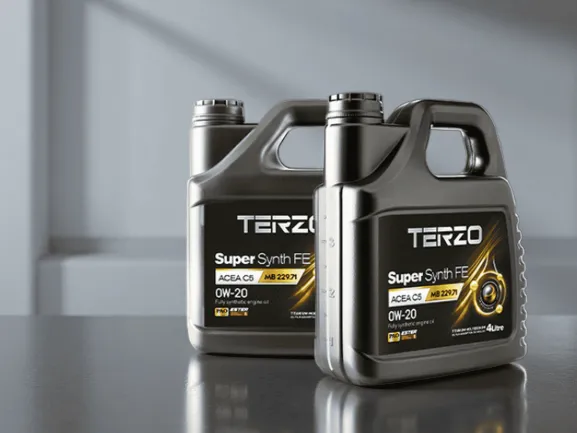API Specifications Classification have been made by AMERICAN PETROLEUM INSTITUTE (API), ENGINE OIL LICENSING AND CERTIFICATION SYSTEM (EOLCS).
Engine Oil Guide
1. Performance Level:
Motor oils designed for cars, vans, and light trucks with gasoline engines fall under API’ s “S” (service) categories. Motor oils designed for heavy duty trucks and vehicles with diesel engines fall under API’ s “C”(commercial) categories. Please see the Gasoline Engines and Diesel Engines charts for descriptions of current and obsolete API service categories.
2. Viscosity Grade:
Measure of oil’ s thickness and ability to flow at certain temperatures. Vehicle requirements may vary. Follow your vehicle manufacturer’ s recommendations on SAE oil viscosity grade.
3. Resource Conserving:
“Resource Conserving” applies to oils intended for gasoline-engine cars, vans, and light trucks. Wide spread use of “Resource Conserving” oils may result in an overall saving of fuel in the vehicle fleet as a whole.
4. Multiple Performance Levels
Oils designed for diesel engine service might also meet gasoline engine service. For these oils the designation is “C” category first followed by the “S” category. “C” category oils have been formulated primarily for diesel engines and may not provide all of the performance requirements consistent with vehicle manufacturers’ recommendations for gasoline fueled engines.
Multigrade oils such as SAE 5W-30 and SAE 10W-30 are widely used because, under all but extremely hot or cold conditions they are thin enough to flow at low temperatures and thick enough to perform satisfactorily at high temperatures. Note that vehicle requirements may vary
| Lowest outdoor temperature | Typical SAE Viscosity Grades for Passenger Cars |
|---|---|
| 0°C (32°F) | 0W-16 / 0W-20 / 0W-30 / 5W-20 5W-30 / 10W-30 / 10W-40 / 20W-50 |
| –18°C (0°F) | 0W-16 / 0W-20 / 0W-30 / 5W-20 5W-30 / 10W-30 / 10W-40 |
| Below –18°C (0°F) | 0W-16 / 0W-20 / 0W-30 / 5W-20 5W-30 |
Follow your vehicle manufacturer’s recommendations on SAE oil viscosity grade.
The current and previous API Service Categories are listed below. Vehicle owners should refer to their owner’ s manuals before consulting these charts. Oils may have more than one performance level.
For automotive gasoline engines, the latest engine oil service category includes the performance properties of each earlier category. If an automotive owner’ s manual calls for an API SJ or API SL oil, an API SM oil will provide full protection.
For diesel engines, the latest category usually – but not always – includes the performance properties of each earlier category.
API’s for GASOLINE ENGINES
| SQ | According to API, SQ oils are formulated to protect modern Turbocharged Gasoline Direct Injection (TGDI) engines from Low-Speed Pre-Ignition (LSPI), ensure Gasoline Particulate Filter (GPF) durability, and improve fuel economy. This official definition underscores a rigorous test suite including LSPI sequence, high-temperature shear stability, and deposit control. |
| SP | Introduced in May 2020, designed to provide protection against low-speed pre-ignition (LSPI), timing chain wear protection, improved high temperature deposit protection for pistons and turbochargers, and more stringent sludge and varnish control. API SP with Resource Conserving matches ILSAC GF-6A by combining API SP performance with improved fuel economy, emission control system protection and protection of engines operating on ethanol-containing fuels up to E85 |
| SN | For 2020 and older automotive engines |
| SM | For 2010 and older automotive engines |
| SL | For 2004 and older automotive engines |
| SJ | For 2001 and older automotive engines |
| SH | For 1996 and older engines. |
| SG | Obsolete: not suitable for use in most gasoline-powered automotive engines built after 1993. May not provide adequate protection against build-up of engine sludge, oxidation or wear. |
| SF | Obsolete: not suitable for use in most gasoline-powered automotive engines built after 1988. May not provide adequate protection against build-up of engine sludge. |
| SE | Obsolete: CAUTION! Not suitable for use in gasoline-powered automotive engines built after 1979 |
| SD | Obsolete: CAUTION! Not suitable for use in gasoline-powered automotive engines built after 1971. Use in more modern engines may cause unsatisfactory performance or equipment harm. |
| SC | Obsolete: CAUTION! Not suitable for use in gasoline-powered automotive engines built after 1967. Use in more modern engines may cause unsatisfactory performance or equipment harm. |
| SB | Obsolete: CAUTION! Not suitable for use in gasoline-powered automotive engines built after 1951. Use in more modern engines may cause unsatisfactory performance or equipment harm. |
| SA | Obsolete: CAUTION! Contains no additives. Not suitable for use in gasoline-powered automotive engines built after 1930. Use in more modern engines may cause unsatisfactory performance or equipment harm |
API’s for DIESEL ENGINES
| FA-4 | Current: describes certain XW-30 oils specifically formulated for use in select high-speed four-stroke cycle diesel engines designed to meet 2017 model year on-highway greenhouse gas (GHG) emission standards. These oils are formulated for use in on-highway applications with diesel fuel sulfur content up to 15 ppm. Refer to individual engine manufacturer recommen dations regarding compatibility with API FA-4 oils. API FA-4 oils are blended to a high temperature high shear (HTHS) viscosity range of 2.9cP–3.2cP to assist in reducing GHG emissions. These oils are especially effective at sustaining emission control system durability where particulate filters and other advanced aftertreatment systems are used. API FA-4 oils are designed to provide enhanced protection against oil oxidation, viscosity loss due to shear, and oil aeration as well as protection against catalyst poisoning, particulate filter blocking, engine wear, piston deposits, degradation of low- and high-temperature properties, and soot-related viscosity increase. API FA-4 oils are not interchangeable or backward compatible with API CK-4, API CJ-4, API CI-4 with API CI-4 PLUS, API CI-4, and API CH-4 oils. Refer to engine manufacturer recommendations to determine if API FA-4 oils are suitable for use. API FA-4 oils are not recommended for use with fuels having greater than 15 ppm sulfur. For fuels with sulfur contents greater the 15 ppm, refer to engine manufacturer recommendations. |
| CK-4 | Current: describes oils for use in high-speed four-stroke cycle diesel engines designed to meet 2017 model year on-highway and Tier 4 non-road exhaust emission standards as well as for previous model year diesel engines. These oils are formulated for use in all applications with diesel fuels ranging in sulfur content up to 500 ppm. However, the use of these oils with greater than 15 ppm sulfur fuel may impact exhaust aftertreatment system durability and/or oil drain interval. API CK-4 oils are especially effective at sustaining emission control system durability where particulate filters and other advanced aftertreatment systems are used. API CK-4 oils are designed to provide enhanced protection against oil oxidation, viscosity loss due to shear, and oil aeration as well as protection against catalyst poisoning, particulate filter blocking, engine wear, piston deposits, degradation of low- and high-temperature properties, and soot-related viscosity increase. API CK-4 oils exceed the performance criteria of API CJ-4, API CI-4 with API CI-4 PLUS, API CI-4, and API CH-4 and can effectively lubricate engines calling for those API Service Categories. When using API CK-4 oil with higher than 15 ppm sulfur fuel, consult the engine manufacturer for service interval recommendations. |
| CJ-4 | Current: for high-speed four-stroke cycle diesel engines designed to meet 2010 model year on-highway and Tier 4 nonroad exhaust emission standards as well as for previous model year diesel engines. These oils are formulated for use in all applications with diesel fuels ranging in sulfur content up to 500 ppm (0.05% by weight). However, the use of these oils with greater than 15 ppm (0.0015% by weight) sulfur fuel may impact exhaust aftertreatment system durability and/or drain interval. API CJ-4 oils are especially effective at sustaining emission control system durability where particulate filters and other advanced aftertreatment systems are used. Optimum protection is provided for control of catalyst poisoning, particulate filter blocking, engine wear, piston deposits, low- and high-temperature stability, soot handling properties,oxidative thickening, foaming, and viscosity loss due to shear. API CJ-4 oils exceed the performance criteria of API CI-4 with API CI-4 PLUS, API CI-4, API CH-4, API CG-4 and API CF-4 and can effectively lubricate engines calling for those API Service Categories. When using API CJ-4 oil with higher than 15 ppm sulfur fuel, consult the engine manufacturer for service interval. |
| CI-4 | Current: introduced in 2002. For high-speed, four-stroke engines designed to meet 2004 exhaust emission standards implemented in 2002. API CI-4 oils are formulated to sustain engine durability where exhaust gas recirculation (EGR) is used and are intended for use with diesel fuels ranging in sulfur content up to 0.5% weight. Can be used in place of API CD, API CE, API CF-4, API CG-4, and API CH-4 oils. Some API CI-4 oils may also qualify for the API CI-4 PLUS designation. |
| CH-4 | Current: introduced in 1998. For high-speed, four-stroke engines designed to meet 1998 exhaust emission standards. API CH-4 oils are specifically compounded for use with diesel fuels ranging in sulfur content up to 0.5% weight. Can be used in place of API CD, API CE, API CF-4, and API CG-4 oils. |
| CG-4 | Obsolete: introduced in 1995. For severe duty, high-speed, four-stroke engines using fuel with less than 0.5% weight sulfur. API CG-4 oils are required for engines meeting 1994 emission standards. Can be used in place of API CD, API CE, and API CF-4 oils. |
| CF-4 | Obsolete: introduced in 1990. For high-speed, four-stroke, naturally aspirated and turbocharged engines. Can be used in place of API CD and API CE oils. |
| CF-2 | Expired. Introduced in 1994. For severe duty, two-stroke-cycle engines. Can be used in place of API CD-II oils. |
| CF | Expired. Introduced in 1994. For off-road, indirect-injected and other diesel engines including those using fuel with over 0.5% weight sulfur. Can be used in place of API CD oils. |
| CE;CD-II;CD | Obsolete: CAUTION! Not suitable for use in most diesel-powered automotive engines built after 1994. |
| CC | Obsolete: CAUTION! Not suitable for use in most diesel-powered automotive engines built after 1990. |
| CB | Obsolete: CAUTION! Not suitable for use in most diesel-powered automotive engines built after 1961. |
| CA | Obsolete: CAUTION! Not suitable for use in most diesel-powered automotive engines built after 1969. |



